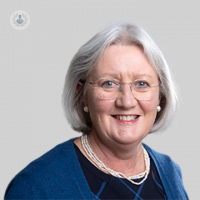Menopause matters: A guide
Written in association with:Menopause represents a natural stage in a woman's life, signalling the conclusion of her reproductive years. While it is a universal experience, the journey through menopause is anything but uniform. The complexity of this life stage extends beyond the stereotypical hot flashes and mood swings, encompassing a myriad of physical, emotional, and hormonal changes that vary from woman to woman. In her latest online article, Dr Sarah Gray explores the fundamentals of menopause and what every woman needs to know.

Understanding menopause
On average, menopause, which is technically the last natural period, occurs between the ages of 45 and 55, with the typical age hovering around 51 in European women. Post menopause is defined by the absence of menstruation for 12 months. The journey leading up to this point, known as perimenopause, can span ten years and is characterised by irregular periods and fluctuating hormone levels.
Hormonal rollercoaster
Menopause occurs because of declining numbers and quality of eggs. Hormone production fluctuates widely before becoming more stable but low. This is the cause of the diverse array of symptoms experienced by women. Oestrogen is the key hormone leading to a host of physical and emotional changes. Longer term consequences arise due to its crucial role in bone density, heart health, and reproductive tissues. As its levels decline, women may experience symptoms such as hot flushes, night sweats, vaginal dryness, and changes in libido.
Beyond the physical: Emotional and cognitive changes
Menopause isn't just about physical changes; it also has profound effects on a woman's emotional and cognitive well-being. Mood swings, irritability, anxiety, and difficulty concentrating are common during this transition. These occur because hormonal fluctuations impact on neurotransmitters (brain chemicals) , contributing to changes in mood and ability to function. Understanding and addressing these emotional aspects is integral to managing the overall impact of menopause.
Bone health and cardiovascular risks
The decline in oestrogen levels during menopause can also affect bone health, increasing the risk of osteoporosis. Adequate calcium and vitamin D intake, along with weight-bearing exercises, are crucial to maintaining bone density. Additionally, menopausal women face an increased risk of cardiovascular issues, emphasising the importance of a heart-healthy lifestyle, including regular exercise and a balanced diet.
Managing symptoms
There is no one-size-fits-all approach to managing menopausal symptoms. Some women may find relief through lifestyle changes, such as maintaining a healthy diet, regular exercise, and stress management. Others may explore hormone replacement therapy (HRT) under the guidance of a healthcare professional is essential to consult with a healthcare provider to develop a personalised plan tailored to individual needs and health history. The importance of support is because menopause is not just a physical transition; it's a holistic transformation that impacts every aspect of a woman's life. Open communication with a healthcare provider is crucial for addressing concerns, exploring treatment options, and ensuring overall well-being.
Dr Sarah Gray is an esteemed general practitioner with over 35 years of experience. You can schedule an appointment with Dr Gray on her Top Doctors profile.



